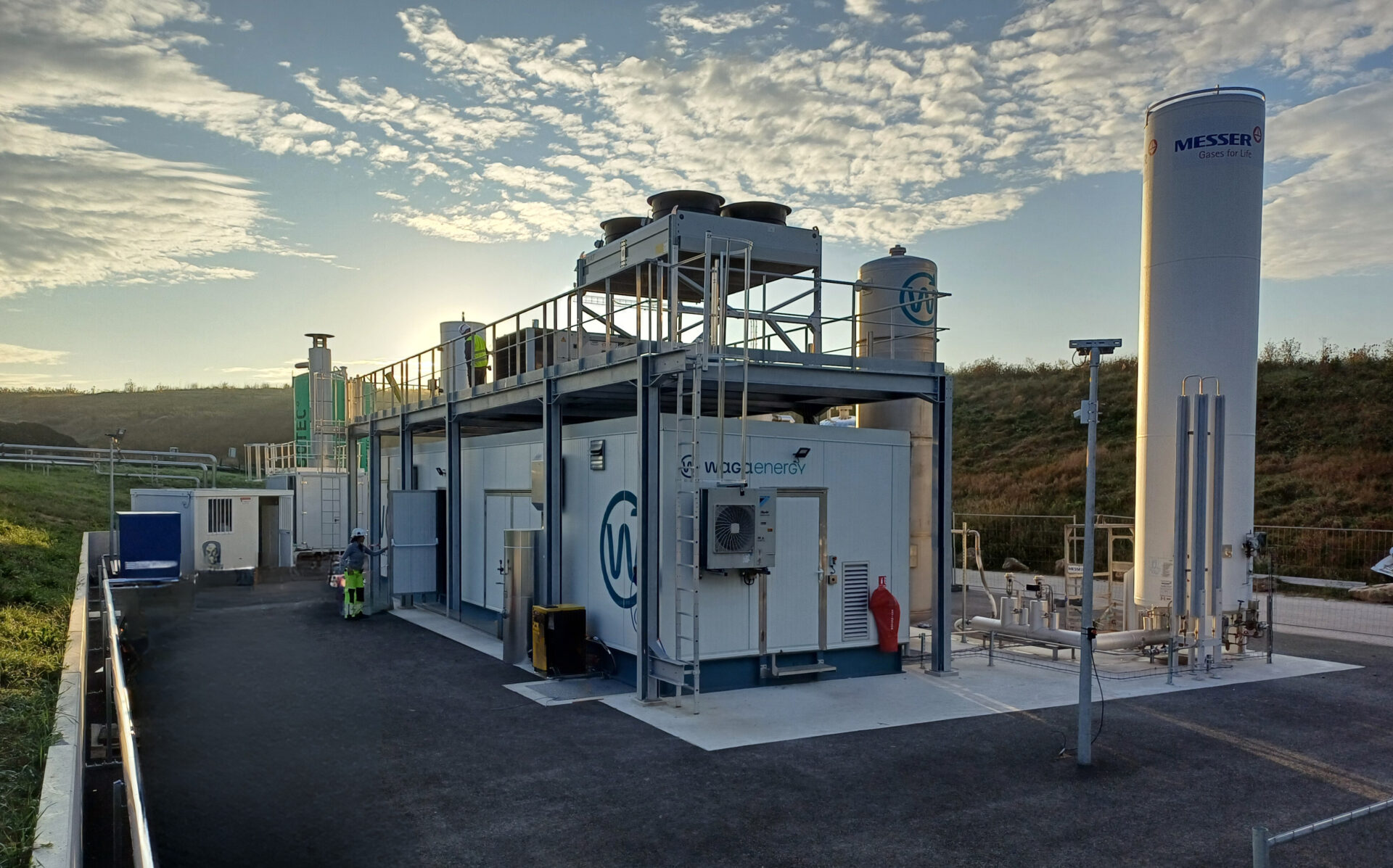
Waga Energy and Veolia have announced the commissioning of a new biomethane production unit at the Granges Waste Recovery Center in Saône-et-Loire. This marks the sixth unit developed jointly by the two companies in six years.
Thanks to this unit, which can purify 600 m³ of raw gas per hour, up to 25 GWh of biomethane will be injected into the natural gas grid each year, providing energy for over 3,000 households. This project will also prevent the emission of 3,300 tons of CO2 equivalent annually.
The Granges site, which already processes 130,000 tons of waste per year, previously recovered biogas as electricity and heat. The new biomethane unit, replacing one of the cogeneration engines, offers improved energy efficiency with renewable energy suited for the transport, industrial, and heating sectors, contributing to the reduction of greenhouse gas emissions and energy independence.
With this new unit, the six installations developed with Veolia now have a combined capacity of 235 GWh per year, providing renewable energy to over 35,000 households while avoiding the emission of 40,000 tons of CO2 equivalent.
“This sixth RNG project carried out with Veolia reflects the successful cooperation between a large multinational company and a young and innovative company, joining forces to make a concrete contribution to reducing greenhouse gas emissions. I am pleased and proud of our constructive collaboration, and particularly the impact of our jointly developed projects in an effort to protect the planet.”
Mathieu Lefebvre, Chief Executive Officer of Waga Energy